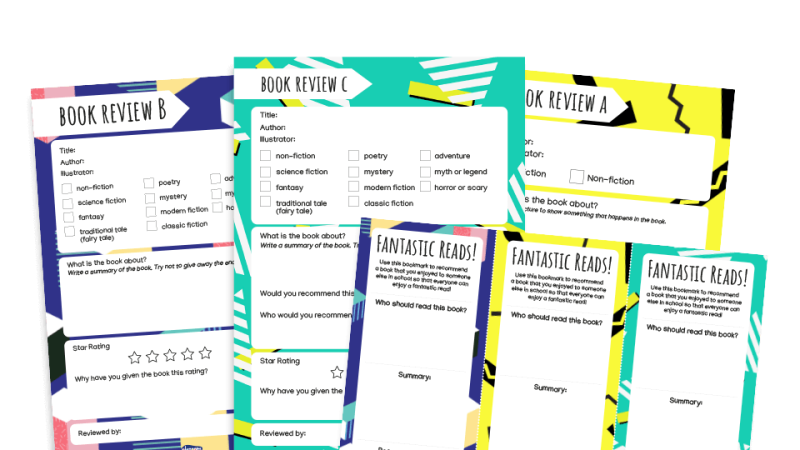Rigid assessment frameworks take the creativity out of children’s writing

Children jumping through the hoops of a technical grammar tests have far too much on their minds to worry about ‘inspiring’ their readers, warns Ros Wilson – why are we letting it happen?

- by Ros Wilson

‘Inspiring divine influence, especially that which is thought to prompt poets etc… Thought etc that is inspired, prompting; sudden brilliant or timely idea.’ (Concise Oxford Dictionary)
The dictionary does not actually adequately define the word ‘inspiration’ (or inspirational), other than attributing it to divine intervention. It should be noted, by the way, that the above quotes were copied verbatim – meaning that the Concise Oxford Dictionary has failed the 2017 ITAF (assessment of 11-year olds’ writing) due to a lack of accuracy in use of the semi-colon.
Inspired writers are not born, they are made. Of course, they must have the potential within them to produce exceptional work, but there is no recorded instance of a child becoming a great author without the outside influence of a parent or other adult or adults, and/or the love of reading and literature.
Today, then, it is the role of the teacher to represent that ‘divine intervention’ for all children in primary mainstream education – to induce them to become inspired and inspirational writers in order to be ‘secondary ready’… or is it?
Children jumping through the hoops of a technical grammar test with bizarre secret rules and test markers who clearly do not all understand grammar themselves (and why would they? It is a minefield that only the most dedicated linguist could pass through safely), and producing writing that evidences the required three examples of colons, semi-colons, passive voice and modal verbs, all used correctly, have far too much on their minds to worry about ‘inspiring’ their readers.
What’s their motivation? After all, there is nothing in the ITAF that requires them to be inspirational, or even to make sense. The last three years have led to the crushing of the 11-year-old impassioned and inspirational, natural writer.
In most schools, children’s ‘first drafts’ are a mechanistic process to be gone through before they re-write, edit, are advised, study models and re-write again, until that piece no longer resembles or reflects the ability of the child.
Just say ‘no’
For three years we have accepted this, grumbling and complaining, but still conforming… driven by goodness knows what, but at least partly by fear of the personal consequences of not doing so.
But this year, in one state school, for the very first time, one brave head teacher cried, ‘Enough!’.
Having read the Inter-Party Committee report that stated, uncategorically, that the current tests were ‘not fit for purpose’, she and the Governing Body of the school – in consultation with all parents – examined the evidence, studied the history, evaluated the historic emotional stress and impact on their pupils and the school and finally came to a radical decision: they would refuse to administer the tests.
Little London Primary School is in the deep inner-city of Leeds and is in the top 10% of most deprived areas in the country. It supports children with 77 different languages, with 82% of pupils having English as an additional language. Many youngsters enter the school speaking no English at all.
Jill Wood – the head – and her team are passionate and inspirational teachers. Behaviour and manners are outstanding and the curriculum is rich and diverse.
Having been in post for 12 years, Jill decided that she would not ‘close down’ the curriculum and rich learning experiences for children, only to see them stressed and often tearful as they struggled with cramming and swotting for significantly flawed tests.
I have visited this school. The ethos is all-pervasive and the amazing progress that the children make in its nurturing yet highly aspirational environment is phenomenal.
This decision was, in my opinion, the correct choice for these children at this time. Pupils in this school are certainly inspired and passionate about their work, as the following examples of their writing (first drafts, unedited, spelling and punctuation reproduced exactly) demonstrate:
The “One hot summer’s day I was shopping in a book shop. I found a lovely book about castles. I touched the first page and it took me back to Medieval times. I found myself on top of the drawbridge of a huge, amazing castle.” (Y2 pupil, EAL, Arabic)
“Fear, my master, torments me day and night. Each morning my mind wonders ‘Where is the light?’ What crimes have I committed – for this daily torment? Now my mind is forever bent. I live in a place where my home is not known. Where children cry out with deafening moans. Hearing the whips of the disfiguring canes – In a building where there is eternal pain.” (Y6 pupil, EAL, Congolese)
Joy, awe and amazement
Inspirational writing almost always springs from inspirational teaching. And inspirational teaching is the product of inspirational teachers. So what are the qualities of an inspirational teacher?
I have asked this question so many times in schools and during conferences all over this country and overseas. The answers are always similar, they are about personality and character.
No-one has ever said, ‘Knows more about writing (or maths, or history) than anyone else.’
I have had the great privilege of observing huge numbers of teachers teaching during my career, as an LA adviser, as an Ofsted inspector (active 12 years), as an AST assessor and as a primary strategy manager, and I have seen many outstanding, and inspirational, individuals.
However, even outstanding teachers will tell you, they are not outstanding all the time.
To maintain passion and enthusiasm, we need to be teaching things we care passionately about and believe in; not merely things that will lead to pupils passing tests. We need to be committed to ensuring that every child we teach achieves highly and shares the joy, the awe or the amazement at that which we are teaching, all the time.
The National Curriculum does not inspire passion, and many would say it shouldn’t; that’s not its job! But, more worryingly, it does not enable passion in many subjects – and certainly not in much of the subject of English.
Any potential for inspired and inspirational writing is crushed by pages and pages of technical requirements – grammar terms, constructions, and statutory spelling lists that are more suited for employment in the House of Commons than use in the daily life of the average citizen in our inner-cities.
My prayer, therefore, is that other heads will unite next year, to protect their pupils and to enable their teachers to inspire a joy and passion for language and literature every day of their primary school life.
Ros Wilson has over 45 years’ experience in education, including teaching, senior management, and advisory and inspection work. She now focuses on writing and her consultancy within Andrell Education.










